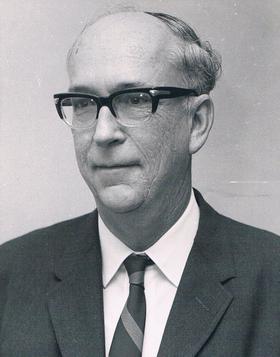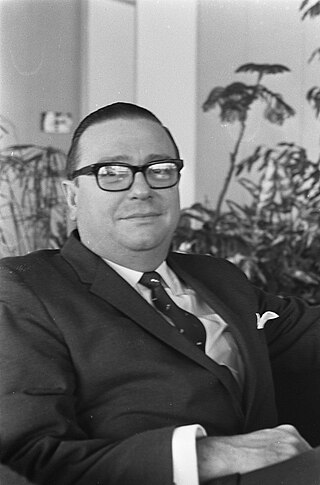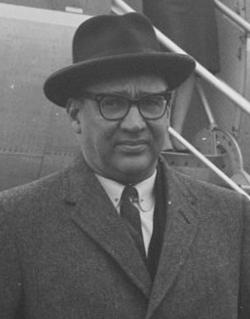
The Netherlands Antilles,also known as the Dutch Antilles,was a constituent Caribbean country of the Kingdom of the Netherlands consisting at of Saba,Sint Eustatius,and Sint Maarten in the Lesser Antilles,and Aruba,Curaçao,and Bonaire in the Leeward Antilles. The country came into being in 1954 as the autonomous successor of the Dutch colony of Curaçao and Dependencies,and it was dissolved in 2010,when like Aruba in 1986,Sint Maarten and Curaçao gained status of constituent countries within the Kingdom of the Netherlands,and Saba,Sint Eustatius,and Bonaire gained status of special municipality of Netherlands as the Caribbean Netherlands. The neighboring Dutch colony of Surinam in continental South America,did not become part of the Netherlands Antilles but became a separate autonomous country in 1954. All the territories that belonged to the Netherlands Antilles remain part of the kingdom today,although the legal status of each differs. As a group they are still commonly called the Dutch Caribbean,regardless of their legal status. People from this former territory continue to be called Antilleans in the Netherlands.

The Real Alternative Party,formerly the Party for the Restructured Antilles until 2016,is a political party in Curaçao. With four seats the party is the second largest party in the Estates of Curaçao,following the 2021 elections. With eight seats,PAR was the largest party in the first Estates of Curaçao,established in 2010 upon the dissolution of the Netherlands Antilles.

Emily Saïdy de Jongh-Elhage is a former Curaçaoan politician who served as the 27th prime minister of the Netherlands Antilles from 2006 until its dissolution in 2010. Following the 2010 Curaçao general election she was elected to parliament and served until her retirement in 2012.

The Council of Women World Leaders,created in 1996,is a network of 83 current and former presidents and prime ministers. It is the only organization in the world dedicated to women heads of state and government. The council's Ministerial Initiative also involves current and former cabinet ministers and secretaries in the work of the council.

The Kingdom of the Netherlands,commonly known simply as the Netherlands,is a sovereign state consisting of a collection of constituent territories united under the monarch of the Netherlands,who functions as head of state. The realm is not a federation;it is a unitary monarchy with its largest subdivision,the eponymous Netherlands,predominantly located in Northwestern Europe and with several smaller island territories located in the Caribbean.

Gerrit Fransisco Schotte is a Curaçaoan politician,and the current leader of the Movementu Futuro Kòrsou (MFK). In the Curaçao general election of 27 August 2010,the MFK became the second-largest party with 5 seats in the Island Council. MFK formed an island government together with Pueblo Soberano and Partido MAN on 4 September. This coalition became the first Cabinet of Curaçao when the Netherlands Antilles was dismantled on 10 October 2010. Schotte at that point became the first Prime Minister of Curaçao.

Moises Frumencio da Costa Gomez was the president of the first Governing Council of the Netherlands Antilles and the first Prime Minister of the Netherlands Antilles.

The 1969 Curaçao uprising was a series of riots on the Caribbean island of Curaçao,then part of the Netherlands Antilles,a semi-independent country in the Kingdom of the Netherlands. The uprising took place mainly on 30 May but continued into the night of 31 May –1 June 1969. The riots arose from a strike by workers in the oil industry. A protest rally during the strike turned violent,leading to widespread looting and destruction of buildings and vehicles in the central business district of Curaçao's capital,Willemstad.

Adèle Pauline van der Pluijm-Vrede is a Curaçaoan politician who served as Acting Governor of Curaçao from October 10,2010,to November 4,2013. When then-governor Frits Goedgedrag resigned for health reasons,Van der Pluijm-Vrede remained as acting governor until a new governor was sworn in on 4 November 2013
Antonito Gordiano "Mito" Croes was an Aruban politician of the Aruban People's Party. He served as Minister Plenipotentiary of Aruba from 1994 to 2001. He previously served as member of the Estates and government minister of the Netherlands Antilles and Aruba.

Evelyna Christina "Evelyn" Wever-Croes is an Aruban politician and current Prime Minister of Aruba,serving since November 2017. She is the first woman to hold this office. She is a member of the People's Electoral Movement (MEP) and has been the leader of the party since 2011.

Dominico Felipe "Don" Martina is a Curaçaoan politician. He served two terms as Prime Minister of the Netherlands Antilles. His first term lasted from November 1979 to October 1984 and his second term from January 1986 to July 1988.
Alejandro Felipe Paula also known as Jandi Paula was a Curaçaoan academic,historian and politician. He served as Prime Minister of the Netherlands Antilles from 28 December 1993 to 31 March 1994. Paula was director of the National Archive of the Netherlands Antilles between 1969 and 1989. He also was a professor and rector at the University of the Netherlands Antilles in the 1990s.
Pedro JoséAtacho is a Curaçaoan politician. He was a member of the Party for the Restructured Antilles. During his political career he was Minister of Justice of the Netherlands Antilles from 1994 to 1998. He served in the Estates of the Netherlands Antilles,including a period as Speaker between 2007 and 2010. After the dissolution of the Netherlands Antilles in 2010 Atacho became a member of the Estates of Curaçao.

Otto Rudolf Anthony Beaujon was a civil servant and politician of the Netherlands Antilles. Beaujon served as Speaker of the Estates of the Netherlands Antilles between 1966 and 1968,and Prime Minister of the Netherlands Antilles from 1 June 1971 until 15 November 1972.

Efraïn Jonckheer was a businessman and politician of the Netherlands Antilles. Jonckheer served as Prime Minister of the Netherlands Antilles from 8 November 1954 until 14 February 1968. He served as Minister Plenipotentiary of the Netherlands Antilles from 1968 until 1971,Ambassador of the Netherlands to Venezuela from 1971 until 1976,and to Costa Rica from 1976 until 1982. As of 2022,Jonckheer was the longest serving Prime Minister in the history of the Kingdom of the Netherlands.

Ernesto Otilio "Netto" Petronia was an Curaçao-born Aruban businessman and politician. He served many times as a minister with multiple portfolios,and was Prime Minister of the Netherlands Antilles from 1969 until 1971.

Sylvius Gerard Marie "Boy" Rozendal was an Curaçao politician and journalist. He served as Prime Minister of the Netherlands Antilles from 1971 until 1975,Minister of Finance and Deputy Prime Minister from 1969 until 1971,and Minister Plenipotentiary of the Netherlands Antilles from 1971 until 1975.

Ciro Domenico Kroon was an Curaçao politician and businessman. He served as Minister of Social and Economic Affairs from 1957 until 1968,and Prime Minister of the Netherlands Antilles from 1968 until 1969. The 1969 Curaçao uprising caused the collapse of his government.
Alicia Angela Tromp-Yarzagaray,known as Ella Tromp-Yarzagaray,is an Aruban former politician of the People's Electoral Movement party. She was the first woman to hold the positions of Minister of Finance and Minister Plenipotentiary in the country.

















